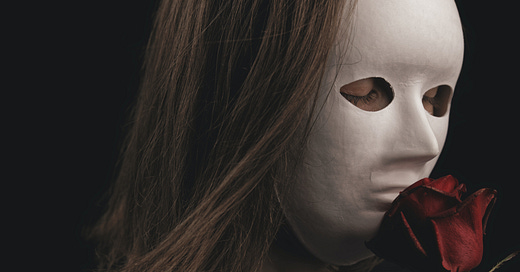I've been scarce the last couple of weeks because grief is a gigantic and unpredictable pain in my backside. I was doing all right lately, all things considered, until my brain suddenly decided I should stop getting so comfortable. All the worst parts of grief – off-the-charts anxiety, insomnia, nightmares when I finally do sleep, despair, exhaustion, lack of motivation – got turned up to 11 and I simply didn't have the mental capacity to write the last two newsletters. Be glad I spared you because they would have simply said, "Ahhhhh, my anxiety!" 750 times.
It got bad enough to necessitate additional meds (that's always fun) and conversations with my grief counselor about more intensive therapy approaches (even more fun). This is the ugly, seldom talked about, embarrassing-even-though-it-shouldn't-be side of grief. Meds and therapy are what it looks like for some vilomahs.
I know that some people – even within the grief community – consider medication a crutch that keeps you from properly grieving and/or healing (whatever that means). It's astonishing to me because the vast majority of people within these same demographics support antidepressant/anti-anxiety medication for people with mental health challenges or who are suicidal. Well, hey, how about also supporting medication for people who don't want to let things get that far? But whatever. I respect their opinion and choices but will keep on doing what's best for me.
I brought it up because, and I can't stress this enough, if you're considering medication, therapy, or both, please know that there's nothing wrong with that. Do what's best for you. Everyone else can blow it out their ear.
Anyway, I know some of the anxiety, etc had to do with the relaxation of pandemic restrictions. Now that our social circle is vaccinated, we've had dinner with our best friends at their house and ours, I've had coffee visits at Panera with a friend, and I've been in and out of the local library about 10 times. I even went to Target once, which was so weird. I suppose it was too much, too soon, because I've had more in-person social activity in the last four weeks than I have in the last 16 months. I guess I overdid it a little.
Pandemic shutdowns began shortly after the one-year anniversary of Christopher's death, which gave me more than a year to work on my grief without a lot of distractions. And yet, I feel even less equipped to deal with socializing now than I did during the interval between Christopher's death and the beginning of the lockdowns.
It's not the people that make post-pandemic socializing difficult, it's being on high alert again after letting my guard down for so long. As you can imagine, I feel safest when I'm home alone (or with only my husband in the house) where I can control almost everything I hear, see, and do. I know I can't stay home forever (can I?), but the minute I set foot outside or let anyone in the house, that comfort flies out the window.
You see, now that I'm past the acute stage, I've absorbed the grief of losing Christopher into myself and it resides inside me like a parasitic twin. I command our body during waking hours, keeping our guard up, staying braced for grief landmines. Grief usually takes the night shift, interfering with sleep and producing epically bad dreams. It sometimes tries to get the upper hand during daylight, but I usually just stick my nose in a book or TV show until it gets bored and goes away.
But I can't do that in the middle of Panera or over a board game with friends, so I'm still learning to navigate the grief that still feel so fresh to me but must seem a decade old to everyone else. My challenge lies in figuring out what my post-pandemic life looks like since I can't go back to the way it was before. Christopher is still gone. I'm still grieving.
So now I have to re-learn how to socialize.
Again.
News & Notes
COVID Has Put the World at Risk of Prolonged Grief Disorder
"A sizable number of these bereaved individuals will find their anguish lasts an unusually long time, does not diminish and renders their life almost unbearable, mental health specialists say."
I'm seeing a lot of articles like this and I'm glad the reality of prolonged grief is getting the attention it deserves. I'm also freaking livid about it because it gets virtually no attention as the reality that many bereaved parents also live with every single day.
Woman Who Lost Daughter to Suicide Hopes Proposed Bill Will Help Others
House bill 1354 "would create a youth suicide review team, which would look at suicides from 2020. 'We actually need to do something,' said Rep. Gina Mosbrucker. 'What’s the commonality of the youth that are doing that. It would make recommendations back to us and we would target legislation.'"
This is happening in Washington but every state needs its own review board. If all the grieving parents who are busy creating foundations and programs and camps and whatever got together and did something collectively, we could maybe make a difference. Instead, we're all out here doing our own thing and nothing's getting done on a larger scale. Unifying parents across the country is the first step, I just need a rich benefactor to make it happen. (((I kid, but I'm also completely serious. I can't stand the thought of living the rest of my life not being able to make a real difference and this newsletter isn't it. I'm haunted by my feeling of powerlessness.)
Why Suicide is Not a Selfish Act
"Saying the suicide is selfish is implying that an individual who dies by suicide, or individuals who are in suicide crisis, have the cognitive ability to think that ending their life is for their own benefit. This is empirically and clinically not the case."
Read this brief analysis to learn why some people believe taking their own life is a selfless act. This is written by someone who was told her suicide attempt was selfish, which is just a vile thing to say. My god.
Thanks for reading this edition of The Vilomah Project newsletter. Please share it to help grieving parents find and support each other. Subscribers are always welcome.
Until next week,
Be well.
Lisa






